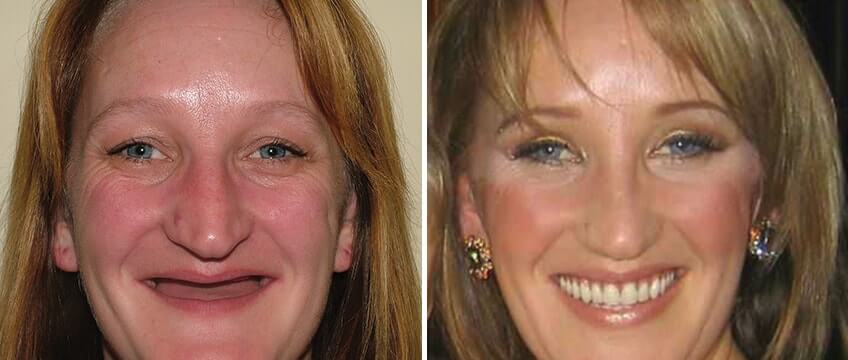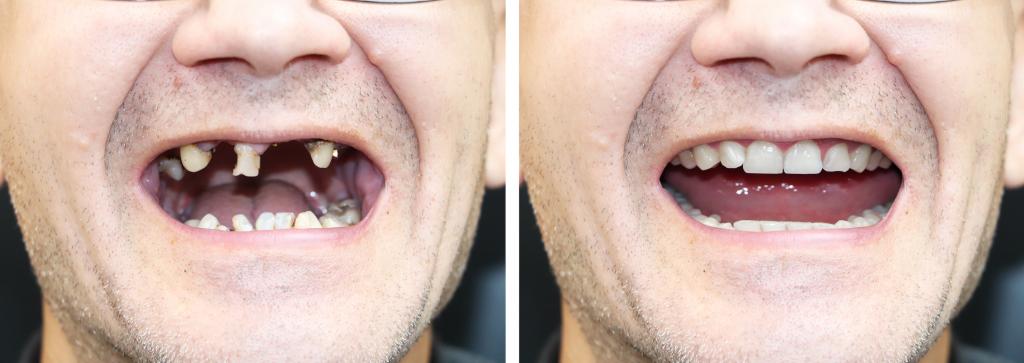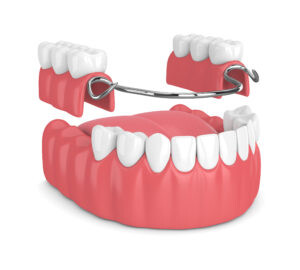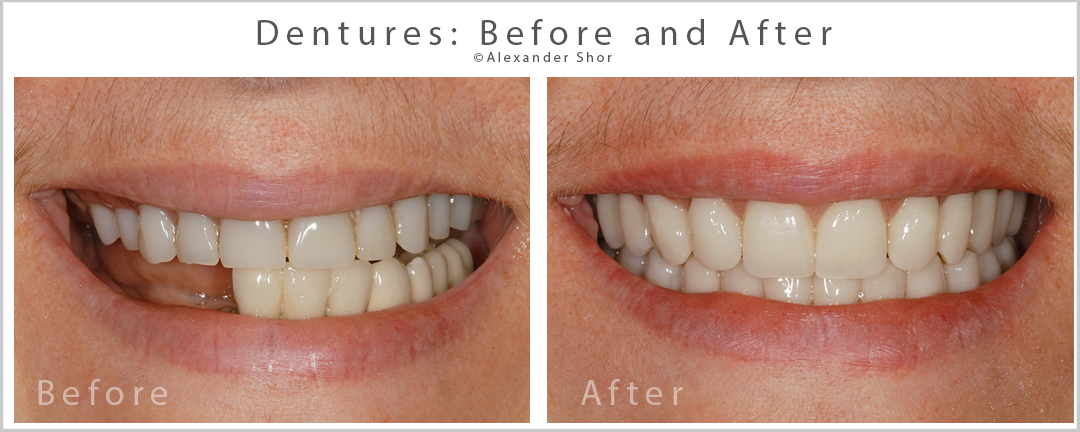






A denture is a removable replacement for missing teeth and surrounding tissues. Two types of dentures are available - complete and partial dentures. Complete dentures are used when all the teeth are missing, while partial dentures are used when some natural teeth remain.


Complete dentures can be either "conventional" or "immediate." Made after the teeth have been removed and the gum tissue has begun to heal, a conventional denture is ready for placement in the mouth about eight to 12 weeks after the teeth have been removed.
Unlike conventional dentures, immediate dentures are made in advance and can be positioned as soon as the teeth are removed. As a result, the wearer does not have to be without teeth during the healing period. However, bones and gums shrink over time, especially during the healing
period following tooth removal. Therefore a disadvantage of immediate dentures compared with conventional dentures is that they require more adjustments to fit properly during the healing process and generally should only be considered a temporary solution until conventional dentures can be made.
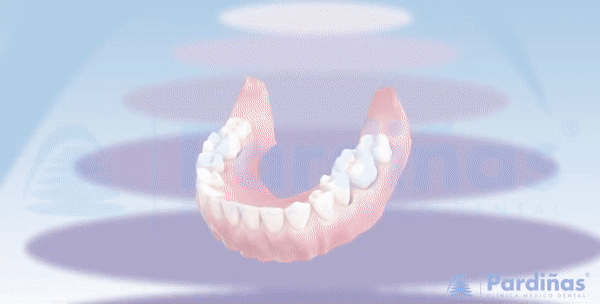
A removable partial denture or bridge usually consists of replacement teeth attached to a pink or gum-colored plastic base, which is sometimes connected by metal framework that holds the denture in place in the mouth. Partial dentures are used when one or more natural teeth remain in the upper or lower jaw. A fixed bridge replaces one or more teeth by placing crowns on the teeth on either side of the space and attaching artificial teeth to them. This "bridge" is then cemented into place. Not only does a partial denture fill in the spaces created by missing teeth, it
prevents other teeth from changing position. A precision partial denture is removable and has internal attachments rather than clasps that attach to the adjacent crowns. This is a more natural-looking appliance.
Most dental insurance providers cover some or all of the cost of dentures. However, contact your company to find out the specifics of what they will cover.
the general steps are to:
![]() Make a series of impressions of your jaw and take measurements of how your jaws relate to one another and how much space is between them.
Make a series of impressions of your jaw and take measurements of how your jaws relate to one another and how much space is between them.
![]() Create models, wax forms, and/or plastic patterns in the exact shape and position of the denture to be made. You will "try in" this model several times and the denture will be assessed for color, shape, and fit before the final denture is cast.
Create models, wax forms, and/or plastic patterns in the exact shape and position of the denture to be made. You will "try in" this model several times and the denture will be assessed for color, shape, and fit before the final denture is cast.
![]() Cast a final denture
Cast a final denture
![]() Adjustments will be made as necessary
Adjustments will be made as necessary
New dentures may feel a little odd or loose for a few weeks until the muscles of the cheeks and tongue learn to keep them in place and you get comfortable inserting and removing them. Also, it is not unusual for minor irritation or soreness to occur and for saliva flow to increase when you first start wearing dentures, but these problems will diminish as the mouth adjusts.
Dentures are made to closely resemble your natural teeth so there should be only a small noticeable change in appearance. In fact, dentures may even improve your smile and fill out your facial appearance.
Eating with new dentures will take a little practice and may be uncomfortable for some wearers for a few weeks. To get used to the new denture, start with soft foods cut into small pieces. Chew slowly using both sides of your mouth. As you get used to new dentures, add other foods until you return to a normal diet. Be cautious with hot or hard foods and sharp-edged bones or shells. And, avoid foods that are extremely sticky or hard. You should also avoid chewing gum while you wear the denture. Also, don't use toothpicks while wearing dentures.
After getting dentures, you may have difficulty pronouncing certain words. If so, practice by saying the difficult words out loud. With practice and with time you will become accustomed to speaking properly with dentures.
If dentures "click" while you're talking, contact your dentist. Dentures may occasionally slip when you laugh, cough, or smile. Reposition the dentures by gently biting down and swallowing. If any speaking problem persists, consult your dentist or prosthodontist.
Your dentist or prosthodontist will instruct you as to how long to wear dentures and when to remove them. During the first several days after receiving your denture, you may be asked to wear it all the time, including while you sleep. Although this may be temporarily uncomfortable, it is the quickest way to identify the areas on the denture that may need adjustment. Once adjustments are made, you should remove dentures before going to bed. This allows gum tissues to rest and allows normal stimulation and cleansing by the tongue and saliva. The denture can be put back in the mouth in the morning.
